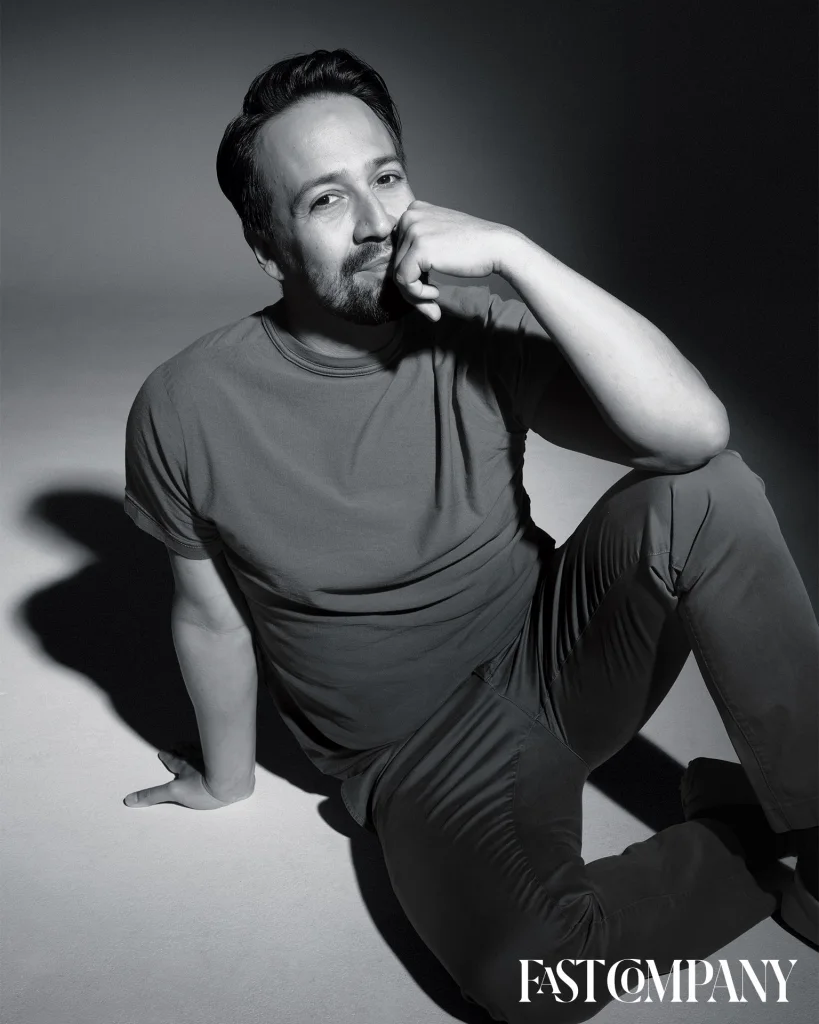This story is part of a special series celebrating the 10th anniversary of the Fast Company Innovation Festival.
When Hamilton debuted off Broadway in 2015, telling America’s founding story through the language of hip-hop, it became a sensation, immediately yanking the American songbook into the 21st century. The show went on to earn nearly $1 billion in Broadway ticket sales, won a Pulitzer Prize, and generated a media universe spanning book publishing, music—the album has sold more than 10 million copies—and streaming; the TV debut essentially launched Disney+.
It has had several lasting effects, too, encouraging other producers to merge history with pop scores (see: Six and Suffs), establishing new industry norms around the need for robust social media campaigns and direct promotion, getting middle and high schoolers interested in history, and even factoring into the Treasury Department’s decision to keep Alexander Hamilton on the $10 bill.
In today’s era of data-driven decision-making and IP strip-mining, it’s almost shocking to think that Hamilton emanated from the brain of one person: Lin-Manuel Miranda. The prolific creator went on to write tunes for Moana, Encanto, The Little Mermaid (live-action), and Mufasa: The Lion King (due December 20)— and direct the film Tick, Tick … Boom!—yet he remains committed to reaching audiences in creative new ways: Miranda recently produced a concept album adaptation of the 1979 film The Warriors, executive-produced by Nas and featuring music he cowrote with playwright Eisa Davis, which Atlantic Records will release on October 18.
What is the legacy of Hamilton? Where do you see the effects of what you created?
One of the lyrics of the show is “You have no control who lives, who dies, who tells your story,” so I think this will change over the years as all legacies do. My hero in musical theater was [Rent creator] Jonathan Larson, because he wanted popular music to be in conversation with theater music at all times. I’m excited when I hear a score that feels like it was written by someone who lives in the same world as me. I’ve seen more of that in Hamilton’s wake. Wherever it comes from, it just feels like we’re talking to today, and that’s exciting.

Then the personal legacy is every time I tell someone I’ve read a book, they think it’s my next show. I used to post my reading lists. I can’t do that anymore, because they’re just, like, “Oh boy, romance-novel musical confirmed!” So I have to be careful about telling people what I’ve read.
How do you know when you’ve created something innovative? Is it a different feeling?
The things I write take years, whether it’s the score to a movie or a musical. You need hundreds of ideas to pursue that passion from beginning to middle to end through two acts. So the moments of inspiration along the way are the fun part, whether it’s realizing the fact that Burr waits and Hamilton charges forward [and] that’s actually the thing, the dramatic tension of your piece. Or my collaborators on Encanto telling me, “We have a list of these three names. What do you think the uncle should be named?” And I say, “Bruno. It’s Bruno. Thank you.” I knew I could do Bruno-no-no, and we were off to the races. Those are the moments that keep you going, the moments that X plus Y plus Z equals something that was greater than all of its sources of inspiration.
What do you think about generative AI and how it’s intersecting with human creativity?
I’m terrified of the potential threat to employment for our industry and yet I know that AI can never be my shrink. It can never have the experiences I had. I’ve seen AI try to imitate my writing. I’m fine. What I pull from when I’m writing, I don’t think AI can access yet. Someone out there is saying I’m wrong.
I was talking to a chess grandmaster who was like, “All of us in the chess land realized computers were smarter than us back in 1997, and people still want to watch people play chess. It didn’t end humans playing chess. It made us better chess players, and it made us think of new strategies, but humans still want to see humans do things.” And I think even if the computers are our overlords, humans are still going to gather in the dark to tell stories. So I feel okay about our line of work.